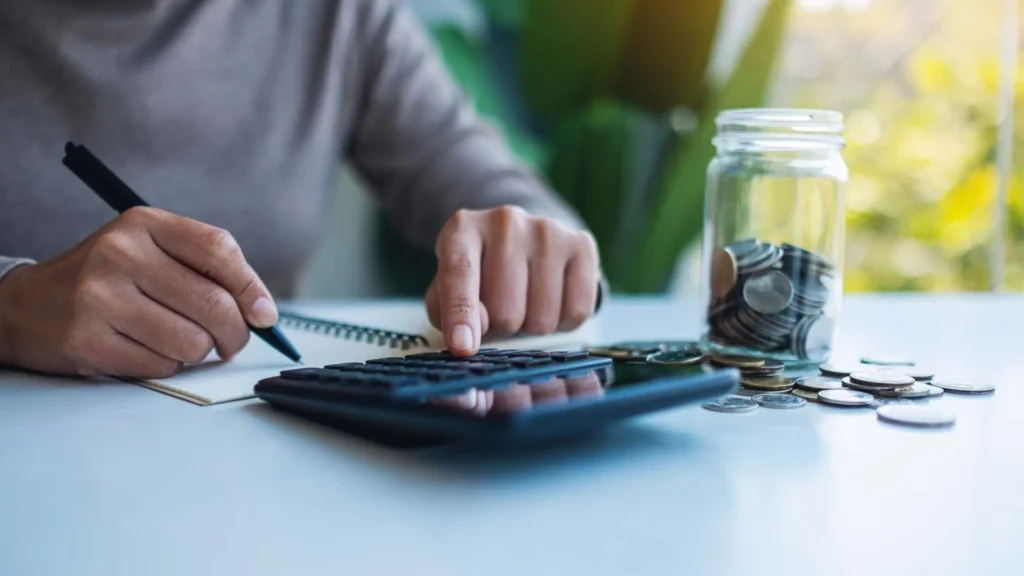Have you ever clicked “Buy Now” with a feel of instant rush? Only to regret it moments later? You’re not alone — we’ve all been there. The impulse spending that seems harmless at the moment but leaves us questioning later. “Why did I do that?” What if I told you this pattern might cost you your financial peace — not just money? Whether it’s a trendy item we didn’t need or an emotional splurge, “Buy Now, Regret Later” has become all too familiar.
This article will help you explore the psychology behind it. You can learn ways to stop falling into such traps. Let’s dive into how impulse spending sneaks up on us and how we can break the cycle before the regret hits. Ready to discover why your next purchase might be more than just a small dent in your wallet? Keep reading!
What Is Impulse Spending — and Why Do We Fall For It?
The Definition of Impulse Buying
Impulse buying is when you purchase without planning or thinking it through. Emotions like stress, excitement, or the thrill of a limited-time deal often drive it. These buys offer quick gratification but rarely align with long-term needs or goals. It leads to regret once the buzz fades. According to the U.S. Financial Literacy and Education Commission, mindful spending is a key component of financial well-being.
Common Triggers That Lead to Regretful Spending
Flash sales, influencer posts, and “limited stock” alerts create a false sense of urgency. You can combine that with emotions like boredom, loneliness, or peer pressure. This way, you’ve got the perfect storm for regretful spending. You need to recognize your triggers. It can help you pause before acting, and it will help you shift from reacting emotionally.
The Rise of “Guilt Purchases” in the Digital Age
Late-night scrolling, one-click checkouts, and hyper-targeted ads make it easier than ever to shop impulsively. We often buy things to “feel better” but feel worse. These guilt purchases act as emotional band-aids — but rarely solve the underlying issue. Awareness of this pattern helps you break it before it breaks your budget.
Who Is Most Affected by Impulse Spending?
Young Adults Navigating Financial Independence
Young adults often face new responsibilities with limited financial experience. Add peer influence, social media pressure, and the desire to “keep up,” and it’s easy to fall into impulse spending. Small, frequent splurges can quietly derail your monthly budget — leading to regret and financial stress before the month ends.
Gig Workers or Freelancers with Irregular Income
When income isn’t consistent, it’s harder to plan — and easier to spend when money does come in. The feast-or-famine cycle can push gig workers to reward themselves impulsively after payments land. Without a stable financial cushion, those “treat yourself” moments can leave gaps during slower weeks, making it difficult to maintain consistent financial habits.
People Using Credit or Cash Advance Apps to Stretch Budgets
Relying on credit or payday advance apps can create a false sense of financial security. It feels like you have more money than you do — encouraging impulsive purchases. But when payback time hits, regret sets in. These tools should be used cautiously, not as an excuse to spend beyond your means.
See Also: How Much Should You Spend on Rent, Groceries, and Gas in 2025?
When Does a Purchase Become a Regret?
Signs You Didn’t Need It in the First Place
If the item sits unopened, unused, or forgotten days later — that’s a sign. Maybe it didn’t solve the problem you thought it would, or you already had something similar. Items that don’t fulfill a clear need or offer lasting satisfaction often become cluttered and regrettable. It’s a lesson in spending with intention.
When You Avoid Checking Your Bank Statement
If looking at your bank account after a purchase fills you with dread, that’s a red flag. Avoidance is a sign of financial discomfort. It means the spending didn’t align with your budget or your values. Facing it head-on helps you understand what triggered the spending and how to avoid it next time.
That “Why Did I Buy This?” Feeling
You know the instant twinge of regret when you realize the purchase didn’t feel as good as you expected. It’s usually tied to emotional or impulse-driven buys. That gut check is valuable. Please pay attention to it. Over time, it becomes a compass pointing toward more intelligent, more satisfying choices.
Where Are You Most Likely to Overspend Without Thinking?
Online Stores With Saved Payment Info
When your card is already saved, a single click completes the purchase, removing the moment to reconsider. This convenience can easily lead to overspending, as it’s easy to forget it’s real money. Removing saved cards or using guest checkout forces a moment of reflection, giving you time to decide if it’s worth it.
Shopping Apps with Instant Checkout
Apps like Amazon or food delivery platforms make spending ridiculously simple. With one swipe or thumbprint, it’s done — and that’s dangerous. These frictionless checkouts are designed to bypass logic and tap into impulse. Try deleting apps, turning off notifications, or logging out to add intentional speed bumps.
In-store clearance Sections or Impulse Racks at Checkout
Stores place tempting, low-cost items near the checkout for a reason — to catch you while your guard is down. These small add-ons seem harmless but can quietly drain your wallet. Stick to your list, avoid browsing “just to look,” and keep your focus on what you came to buy.
How to Break the Buy-Now-Regret-Later Cycle
Use the 24-Hour Rule Before Every Purchase
Before buying something non-essential, wait 24 hours. This pause gives your brain time to relax and ask, “Do I need this?” Often, the urge passes — and so does the regret. It’s a simple trick that helps you separate emotional spending from intentional choices.
Unlink Cards from Shopping Apps
Make impulse spending harder by removing saved payment info from apps and websites. When buying requires extra steps — like grabbing your wallet or entering card details — you’re more likely to think twice. A slight friction builds a significant buffer between want and purchase.
List Wants vs. Needs Before Payday to Spend Wisely
Before your next paycheck hits, list your actual needs and wishlist items. Prioritize essentials first. Seeing it all on paper helps you spend with intention instead of emotion. It also makes it easier to say no to impulse buys when your priorities are clear.
Set a Weekly “Fun Money” Cap That Feels Guilt-Free
Budget a small, realistic amount each week for guilt-free fun — snacks, coffee, or little treats. Planning for joy makes you less likely to overspend chasing it. This “fun money” zone balances spending so you enjoy life and stay on track financially.
Read related blogs: A Smarter Way to Plan Monthly Spending
What to Do If You’ve Already Overspent
Return or Cancel What You Can
Act fast — many purchases can be returned or canceled if caught early. Check your order status, tags, and receipts. Whether it’s an online buy or an in-store splurge, returning unused items is one of the quickest ways to recover. Don’t let guilt hold you back — smart money moves start with minor corrections.
Mini Spending Audit to Spot Emotional Triggers
Review recent purchases to identify spending triggers. Was it boredom, stress, or a midnight scroll? Write down what you bought, why, and how it made you feel. This mini-audit isn’t about blame — it’s about recognizing patterns. Once you know your “why,” you can create better habits and stop repeating the cycle.
Consider Short-Term Help Like a Cash Advance for Urgent Needs
If overspending leaves you unable to cover essentials, consider a short-term solution like a small cash advance or borrowing from a trusted source. These options can help in a pinch but should be used wisely. Prioritize needs, avoid high-interest traps, and plan to repay quickly to avoid deeper debt.
Forgive Yourself — and Adjust for Next Time
Everyone slips up sometimes. Please don’t beat yourself up over it. Use this moment as a chance to reset, not to spiral. Acknowledge the mistake, forgive yourself, and take one small action to adjust—like setting a budget or deleting a shopping app. Progress starts with compassion and a clear step forward.
Final Thoughts: From Regret to Reset
Everyone overspends at some point. What matters is what you take away from the experience. Treat financial slip-ups as lessons, not failures. Reflect, reset, and make small shifts. Growth doesn’t come from guilt — it comes from giving yourself grace and choosing to do better next time.
You can’t fix what you don’t notice. The Beem app helps you track your money habits, bringing clarity and control to your finances. One of its standout tools, the BFF Budget Planner – The Better Financial Feed™, boosts financial awareness by tracking spending, offering insights, and guiding you toward smarter habits—all in one place. With visibility comes the power to change.
Before you spend, ask: Does this add value to my life? Swap mindless scrolling and flash-sale FOMO for mindful choices that align with your goals. Intentional spending brings more satisfaction and less regret; over time, it builds financial peace. Spend in a way that feels good long after checkout.















































